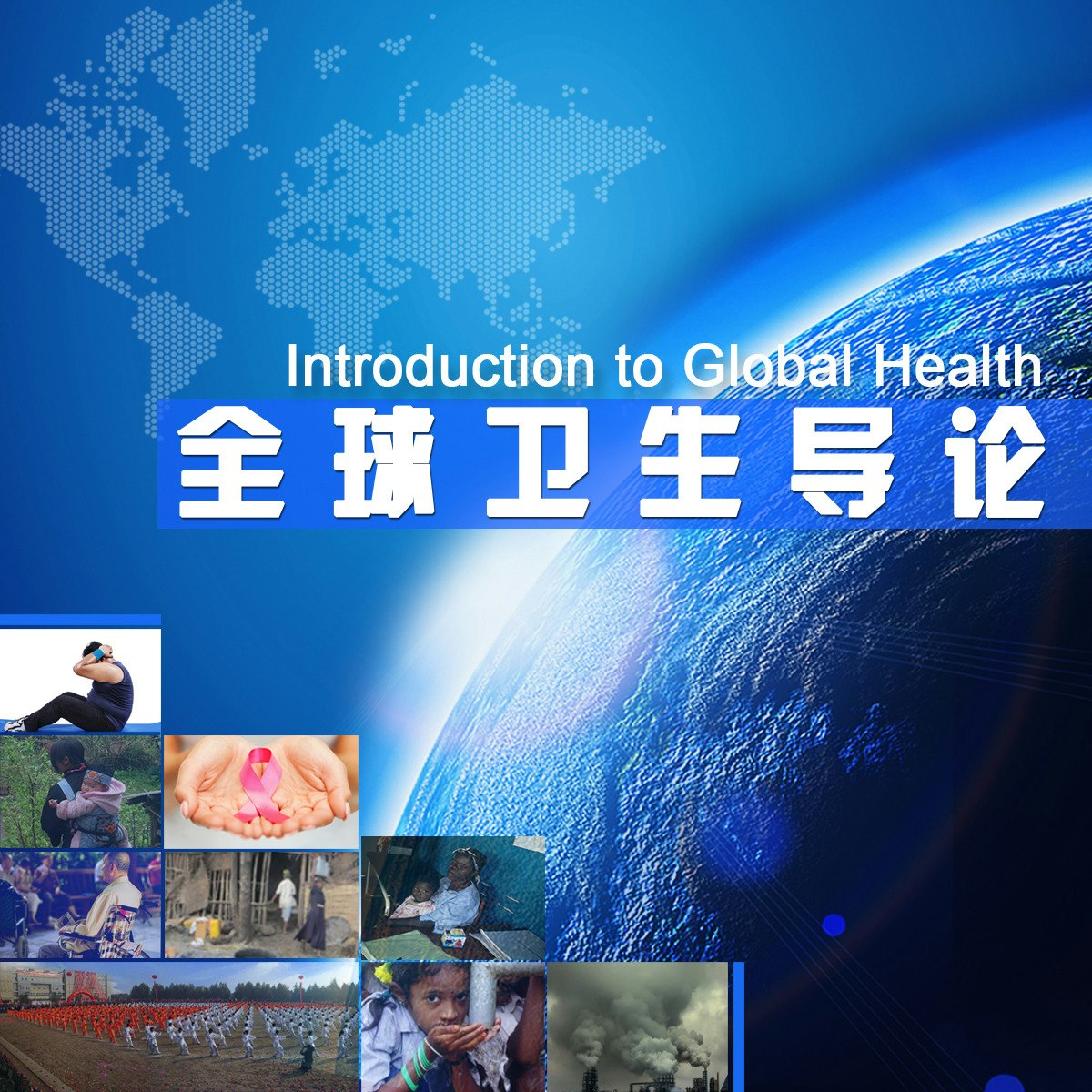
全球卫生导论回顾了全球范围内公共卫生发展的各个历史时期令人关注及其影响重大的事件,介绍公共卫生、国际卫生和全球卫生等相关概念和背景,阐述全球疾病负担、健康决定因素、主要健康问题及其应对策略,剖析目前全球关注的影响健康的主要卫生问题,从群体的层面的因素分析到个体层面的行为指导,分析社会发展、卫生系统、公共政策和全球合作对人群健康状况的决定作用。
Read more
全球卫生导论回顾了全球范围内公共卫生发展的各个历史时期令人关注及其影响重大的事件,介绍公共卫生、国际卫生和全球卫生等相关概念和背景,阐述全球疾病负担、健康决定因素、主要健康问题及其应对策略,剖析目前全球关注的影响健康的主要卫生问题,从群体的层面的因素分析到个体层面的行为指导,分析社会发展、卫生系统、公共政策和全球合作对人群健康状况的决定作用。
全球卫生导论回顾了全球范围内公共卫生发展的各个历史时期令人关注及其影响重大的事件,介绍公共卫生、国际卫生和全球卫生等相关概念和背景,阐述全球疾病负担、健康决定因素、主要健康问题及其应对策略,剖析目前全球关注的影响健康的主要卫生问题,从群体的层面的因素分析到个体层面的行为指导,分析社会发展、卫生系统、公共政策和全球合作对人群健康状况的决定作用。
全球卫生以提高全球范围内的健康水平、实现全球健康公平为宗旨,重点关注超越国界的健康问题、健康决定因素和解决方案,涉及医学领域内外的多学科,提倡不同学科间的通力合作和人群预防与临床治疗的综合,同等对待不同地域、不同经济水平、不同的种族的所有人群。作为一门普适型的全球卫生导论课,旨在使不同学科和专业领域的学习者能了解全球卫生的历史和相关概念,熟悉全球疾病负担、健康决定因素、主要健康问题和全球应对策略。
课程内容包括全球卫生概述、卫生系统与筹资、全球疾病负担、环境与健康、营养/生活方式与健康、妇幼保健与生殖健康、耐药结核病流行与控制、艾滋病的流行与控制、老龄化与慢性病防治、突发公共卫生事件应对等。
授课团队由复旦大学公共卫生学院各二级学科的带头人和资深教授组成。本课程期望能引起不同学科的学生对全球健康问题的关注,激发其致力于探究健康相关问题的兴趣,引导其分析健康问题的社会决定因素,赋予其用合力解决全球健康问题的理念。
Two deals to help you save
What's inside
Syllabus
全球卫生导论宣传视频
宣传视频
全球卫生概述
全球卫生是以公共卫生的理论为基础,利用不同学科的知识与技术理解与改善全球人口的健康的科学。
公共卫生是透过组织社会资源,为公众提供疾病预防和促进健康的一门科学与艺术,它使用临床医学、预防医学、健康促进、环境卫生、社会科学等技术和手段实现其目标。
Read more
Syllabus
Good to know
Save this course
Reviews summary
Informative global health introduction
Activities
整理课程笔记、作业和考试
Show steps
帮助学生巩固知识,为复习和考试做好准备。
Show steps
-
收集课程中所有笔记、作业和考试。
-
整理材料,按主题分类。
-
标注重点和关键概念。
Show all one activities
整理课程笔记、作业和考试
Show steps
帮助学生巩固知识,为复习和考试做好准备。
Show steps
- 收集课程中所有笔记、作业和考试。
- 整理材料,按主题分类。
- 标注重点和关键概念。
Career center
Global Health Researcher
Medical Anthropologist
International Development Specialist
Nutritionist
Nurse
Social Worker
Health Educator
Environmental Health Scientist
Public Health Nurse
Policy Analyst
Physician
Epidemiologist
Pharmacist
Urban Planner
Nonprofit Manager
Reading list
Share
Similar courses
OpenCourser helps millions of learners each year. People visit us to learn workspace skills, ace their exams, and nurture their curiosity.
Our extensive catalog contains over 50,000 courses and twice as many books. Browse by search, by topic, or even by career interests. We'll match you to the right resources quickly.
Find this site helpful? Tell a friend about us.
We're supported by our community of learners. When you purchase or subscribe to courses and programs or purchase books, we may earn a commission from our partners.
Your purchases help us maintain our catalog and keep our servers humming without ads.
Thank you for supporting OpenCourser.


